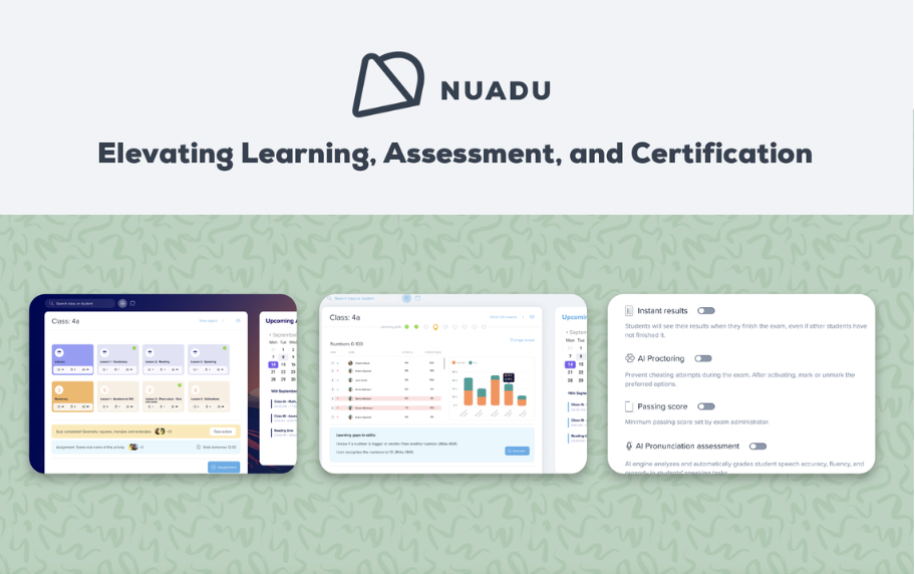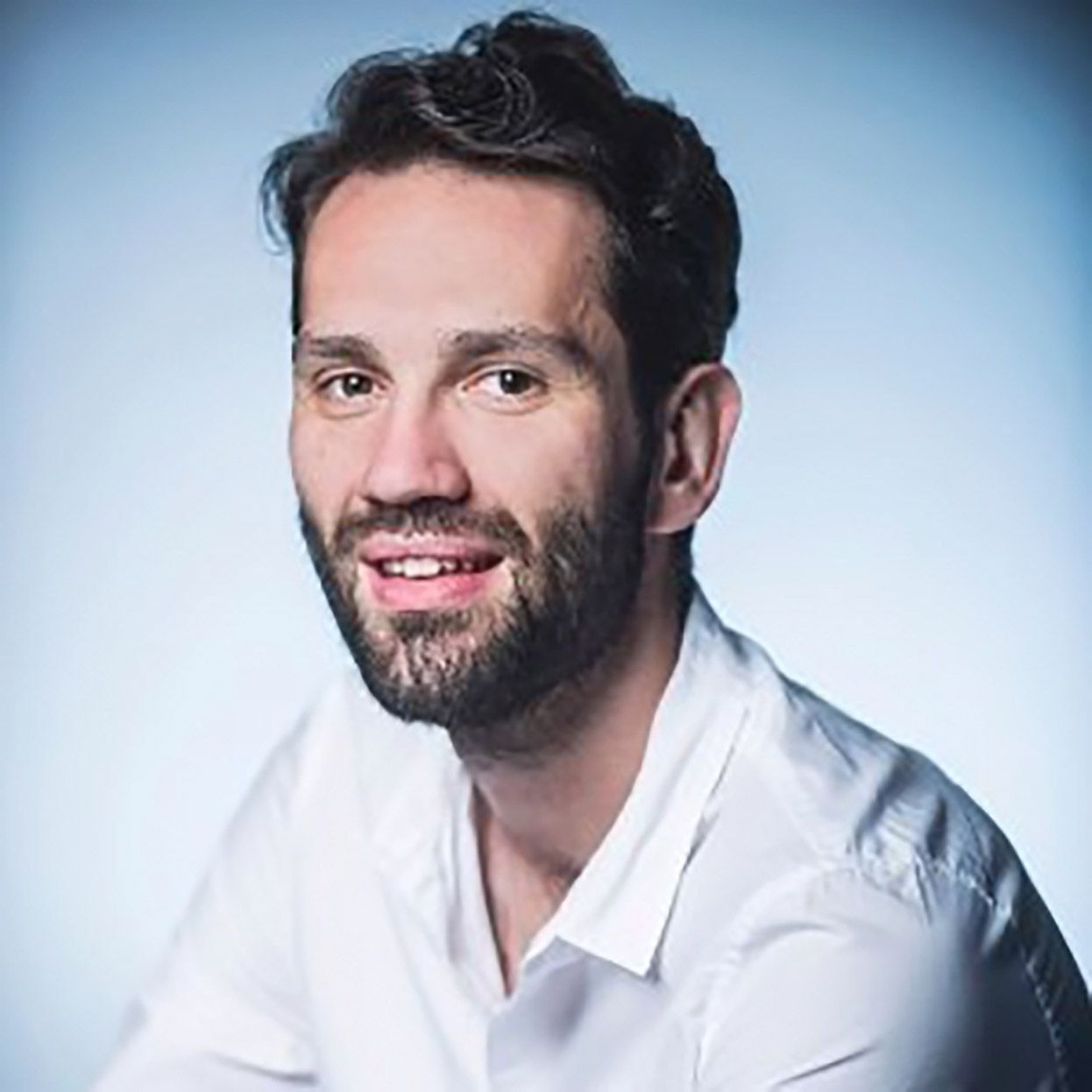The sun never sets on NUADU – global startup with Polish roots

How do you manage a Polish edtech company from Asia and sell competency assessment technology across diverse cultures? Jan Lambrechts, CEO of NUADU, shares insights on global challenges, cultural adaptability, relationship-building, and a new strategy that has taken the startup to the next level. "Sales begin with understanding how people want to listen, not just what they want to hear" - Jan emphasizes.
How do you find working at NUADU?
Working at NUADU has been incredibly rewarding. What energizes me is the opportunity to make a tangible impact by helping companies, educational institutions, and individuals prepare for an increasingly skills-based future.
In today's rapidly changing world, where traditional credentials are losing relevance, skills validation and assessment will be absolutely critical going forward. I'm genuinely excited to see that NUADU has positioned itself perfectly to meet these emerging needs with our comprehensive assessment and certification platform.
As our company mission states, we're focused on enhancing learning and skill certification through comprehensive technology solutions across multiple countries with a substantial user base. Being part of this mission, especially during such a transformative time in the global skills economy, is both challenging and fulfilling.

Jan Lambrechts - NUADU
How do you manage a Polish startup from Asia that sells services in different countries across Asia?
As a serial entrepreneur with Belgian and Singaporean roots and 20 years of experience in Southeast Asia, I've found that the demand for our solutions is universal. We operate as a global company addressing global challenges, though each market certainly has its unique characteristics.
In Asia, with its young, growing population, the focus is often on upskilling for emerging industries. In regions with aging populations, the emphasis shifts toward retraining and continuous skill validation. However, all countries face similar fundamental challenges as we transition into this new knowledge-based economy.
What makes our setup work remarkably well is that our Polish team has extensive experience in Asian markets. They regularly travel to the region, understand the business dynamics, and have built strong relationships here. This means the physical distance between Singapore and Poland has minimal impact on our operations, aside from managing time zone differences.
My presence in Singapore, where I've been immersed in the regional business ecosystem for years, provides a strategic advantage. Singapore serves as an excellent hub for expanding our footprint across Southeast Asia and beyond while maintaining strong connections with our development team in Europe.
We’re structured as a truly global company, so location is an advantage, not a barrier. With the right processes and a culture built around asynchronous work, the sun never really sets on NUADU.
What is the way to sales success in such a setup?
Agility is absolutely critical to our sales success. In our environment, we must customize our approach for each market segment - whether it's educational institutions, government bodies, or corporate clients.
We place tremendous emphasis on building strong interpersonal relationships and strategic partnerships. This means participating actively in relevant industry events, maintaining personal contact with key stakeholders, and ensuring we're visible in the right circles.
Our approach to marketing materials and product communications is equally strategic. We don't simply deliver generic sales pitches - we create tailored product presentations that highlight specific features relevant to what prospects need. This might mean emphasizing our AI capabilities like automated grading and pronunciation assessment for educational clients, or focusing on our secure AI proctoring solutions for corporate compliance training.
Finally, we've developed an approach to client and partner onboarding that recognizes each implementation is unique while maintaining our core methodologies. This balance of customization and standardization has proven effective across diverse markets.
How do you perceive cultural differences when running the company? Do they help in increasing sales or are they a challenge that needs to be faced?
Cultural awareness is essential and must be top of mind always. Cultural differences manifest in every aspect of business, and understanding these nuances allows us to communicate, advocate, and present our unique selling points in ways that resonate with various stakeholders.
These cultural insights must be gained through firsthand experience. For example, the direct, matter-of-fact communication style common in European business settings can sometimes be perceived as abrupt or difficult to interpret in parts of Southeast Asia, particularly during initial meetings or when new stakeholders join discussions.
This awareness extends to our marketing and sales approaches. In some markets, detailed technical specifications and feature lists might be most effective, while in others, a narrative approach that communicates the broader impact and transformation our solutions enable is more compelling. Understanding how different cultures prefer to receive information is crucial in crafting effective presentations.
Once you develop cultural fluency, you must remain adaptable - cultural norms are never static. Sometimes simple gestures, like incorporating a few phrases of the local language, can open doors that might otherwise remain closed. For example, using Bahasa Malaysia can create immediate connections even in neighboring Indonesia, demonstrating the power of cultural appreciation.
Rather than viewing cultural differences as obstacles, we see them as opportunities to deepen relationships and demonstrate our commitment to understanding each market we serve. This approach has been instrumental in our expansion across multiple countries in Asia.
The golden rule here is stay curious and keep listening even after you think you’ve ‘cracked’ the market – because the moment you stop adapting, you’re behind.
NUADU has changed its selling strategy and product offering. How is the new strategy working?
It’s paying off. Our evolved vision has been transformative. We've successfully transitioned from an education-exclusive focus to include corporate and government sectors, embracing the global need for skill validation and workforce readiness while aligning with future work trends and the skills revolution.
This strategic pivot has significantly expanded our pipeline while addressing a much larger market than just educational institutions. By diversifying into government institutions with national examination systems and standardized testing infrastructure, and into corporate markets with workforce development and compliance testing solutions, we've created multiple revenue streams with tremendous growth potential.
The market response to our expanded focus has been extremely positive, creating an informative feedback loop that allows us to refine our approach in real-time. Just as important, the feedback loop is short: new use-cases surface fresh product ideas, which we iterate on quickly and feed back to education clients. That real-time learning cycle is exactly what keeps NUADU ahead of the curve.
While this transition certainly presents challenges, the early results validate our strategic direction and give us confidence that we're positioning NUADU for sustainable long-term growth in the global assessment and certification marketplace.
Thank you. Interview by Ewa Pysiewicz, May 2025.
Jan Lambrechts is a visionary entrepreneur with over two decades of experience in Southeast Asia, building and scaling innovative technology-driven solutions across education, workforce development, and data-driven assessment. As CEO of NUADU, he leads the company’s mission to enhance learning and skill certification through technology, helping governments, educational institutions, and enterprises implement scalable assessment solutions. Jan has been closely following NUADU’s journey since 2017, providing strategic insights and guidance. In 2024, he took on the role of CEO to drive NUADU’s next phase of growth, expanding its impact in education, corporate and government sectors worldwide.